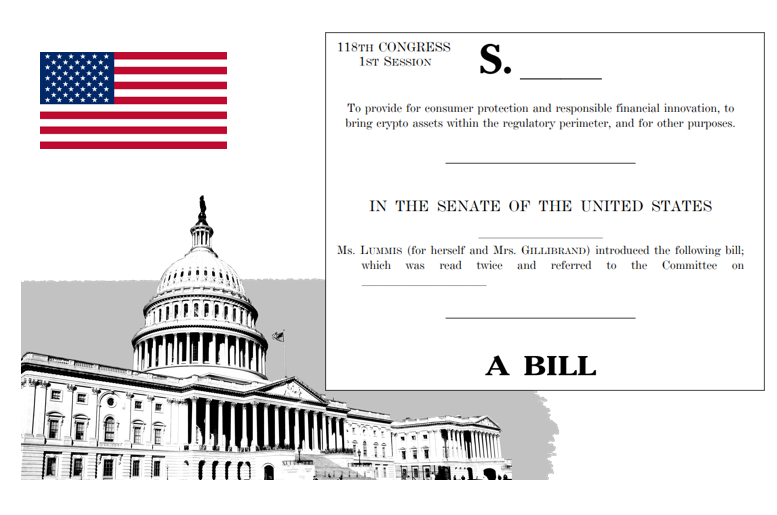
The Responsible Financial Innovation Act was reintroduced by Republican Senator Cynthia Lummis, a member of the Senate Banking Committee which oversees the U.S. Security Exchanges Commission (SEC), and Democrat Senator Kirsten Gillibrand, a member of the Senate Agriculture Committee which oversees the Commodity Futures Trading Commission (CFTC). The legislation aims at establishing a comprehensive regulatory framework for digital assets, clarifying the regulators' scopes (SEC vs. CFTC), and providing consumer protection.
The crypto asset industry is here to stay.
— Senator Cynthia Lummis (@SenLummis) July 12, 2023
Today, @SenGillibrand and I are reintroducing landmark legislation to create a federal regulatory framework that allows crypto businesses and investors to prosper here in America while protecting consumers from bad actors. pic.twitter.com/z2pr0evWt2
Senators Lummis and Gillibrand first announced that they were working on the bill back in March 2022. In June 2022 the Republican overseer of the SEC and the Democrat overseer of the CFTC made a great public appearance of consensus for the new bill, but unfortunately we hadn’t heard any more about it for over a year.
The bill aimed to finally give clear common definitions of crypto-related terms. It also draws a line between which crypto assets are commodities and securities to define the border for regulation between the SEC and CFTC.
The bill proposes the Howey test, a century-old precedent case used in the United States, to determine whether a token is considered a security and thus regulated by the SEC.
All other crypto assets, according to the bill, will be considered commodities and will fall under the jurisdiction of the CFTC. Crypto exchanges will need to register with the authority.
According to the document, financial regulators are required to provide interpretive guidance on a matter within their jurisdiction within 6 months of a request (recently Coinbase unsuccessfully tried to receive such a response from the SEC).
The consumer protection section of the act has nearly doubled in size since the 2022 version, and includes provisions designed to prevent “another FTX”. It allocates authority for consumer protection between the CFTC, SEC, banking agencies and a new Customer Protection and Market Integrity Authority, including proof of reserve requirements, cybersecurity standards, etc.
Although the date of the 2022 version of the bill was after the Terra stablecoin project collapse, lawmakers could not amend it at the time. In the 2023 version, the bill prohibits using the term 'stablecoin' in reference to algorithmic stablecoins, or as the bill calls them 'endogenously referenced crypto assets'. The updated bill classifies algorithmic stablecoins neither as a commodity, nor as a security, but as a hybrid instrument under CFTC jurisdiction.
The new version, similar to the previous one, requires all payment stablecoins to be issued by a depository institution supervised by a federal/state regulator. The original version, however, indicated that entities that did not fall within the definition of “depository institution” under the Federal Reserve Act but were still operating under a state or federal charter or license were permitted to issue and redeem payment stablecoins, subject to the bill requirements. The new version has this clause removed.
Surprisingly, the previous U.S. crypto law proposal included a separate section about China's CBDC (while the digital dollar was not mentioned anywhere). The lawmakers were specifically concerned about the use of the digital yuan on government information technology devices. This section has also been removed from the current version.
Finally, the bill updates the U.S. tax code allowing the industry “to fund its own oversight.” Interestingly, it also suggests permitting the CFTC to impose a user fee on crypto asset exchanges to fund its increased costs.
Lately, crypto users and companies have criticized the authorities for the lack of regulation which prevents the U.S. from playing a leading part in the crypto development process. While the Lummis-Gillibrand bill aims at becoming the country's comprehensive crypto bill, our Observations of its development so far show that the lawmakers have taken more of a reactive rather than a researched approach.

